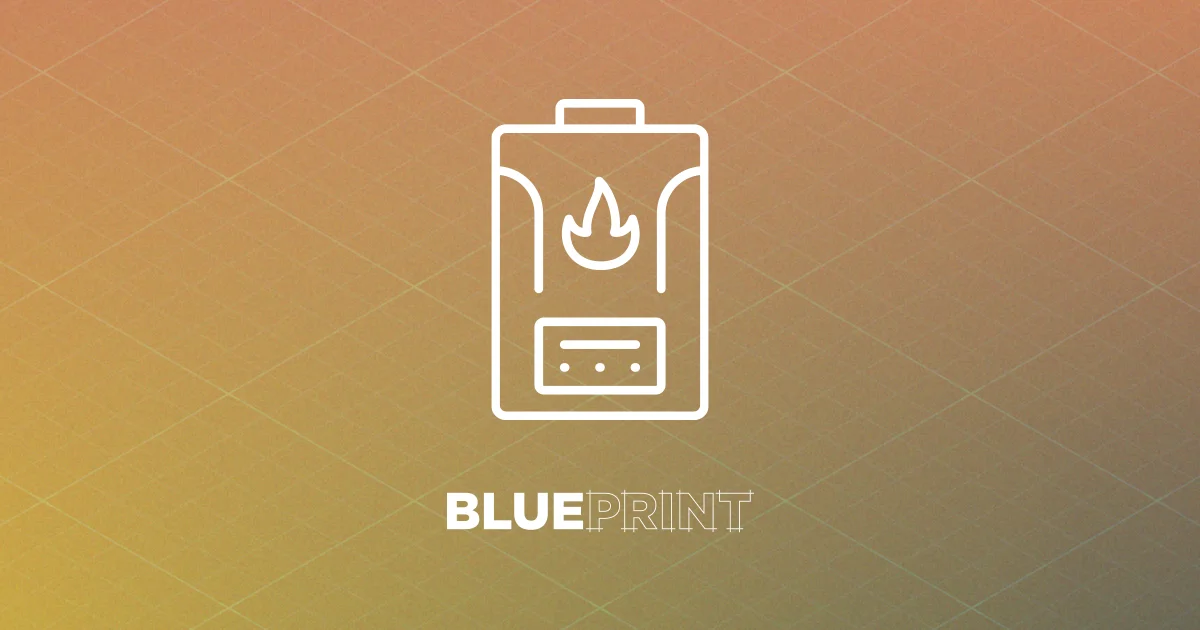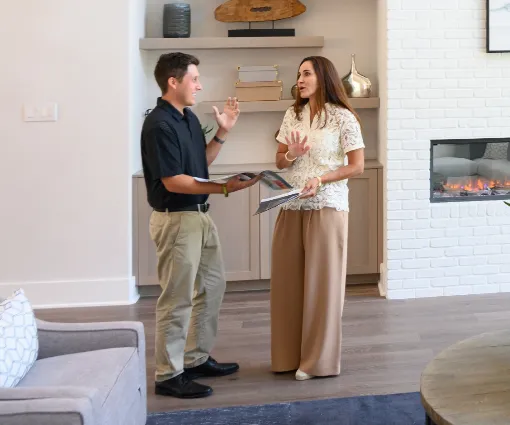Healthy Home Blueprint: What to Know About Gas Furnaces
3 minute read
In cold weather climates, gas furnaces can be an invaluable resource for homeowners. On the flip side, they can be quite costly if things go awry—and those problems only worsen as your unit ages and imparts lasting effects on the air you breathe. Luckily, with AprilAire, you can utilize gas furnaces and foster a Healthy Home environment for you and your family!
How Gas Furnaces Can Impact Our Health
Over the years, gas furnaces have been negatively impacting the air we breathe. In fact, you may not know it but you could be experiencing related health hazards right now, like:
- Carbon Monoxide Poisoning
- Itchy Skin
- Asthma and Allergies
- Bronchitis and Sinusitis
- Viruses
What Homeowners With Gas Furnaces Should Pay Attention To
“A cold night in January, with the furnace faltering or failing, is not the time to assess your heating system. Do it now,” recommends the Home Energy Center.
To ensure you and your family are protected from the potential hazards created by gas furnaces, it’s important to pay close attention to the following in order to protect and maintain your Healthy Home.
Consider the Type of Unit
Educate yourself and your family on the type of gas furnace you have, want, or need. Most commonly, gas furnaces can fall under one of these three categories: Single-stage, two-stage, or modular.
- Single-stage units have a gas valve that opens and shuts to allow gas to flow at one rate—either ‘on’ or ‘off.’
- Two-stage units have a gas value that can be adjusted to allow gas to flow on either ‘high’ or ‘low.’ These gas furnaces tend to allow more heating options for homeowners.
- Modular units tend to be the most efficient option when it comes to gas furnaces. Here, you can adjust the heat it gives off in 1% increments—allowing you to adjust how much gas is needed at any given time. Additionally, these gas furnaces are ideal for even temperature regulation!
What about filters for gas furnaces? Click to get the facts to improve your Healthy Home environment.
Consider the Age of Unit
As gas furnaces age, they wear down and create more potential hazards that could lead to costly repairs. On average, gas furnaces have a life expectancy of 16 to 20 years, but the dangers can loom earlier as your unit starts to age.
If the heat exchange inside your furnace starts to crack or carbon monoxide is present, you could be at risk of carbon monoxide poisoning. When exposed, you can most commonly expect headaches, nausea, blurred vision, and disorientation. If you notice this, have your furnace checked immediately.
Keep Wellness Top-of-Mind
Gas furnaces have the potential to dry out the air inside your home, especially older furnace models. When your furnace dries out your air, you can experience itchy skin, nosebleeds, asthma, and more. That’s why it’s important to ensure you pair your furnace with an AprilAire Whole-House Humidifier to create a Healthy Home.
Break Down Utility Costs
Your monthly utility bills can provide insight into how gas furnaces are performing. If you notice skyrocketing costs, speak with your local pro. Thinking about replacing your unit altogether? Here are some things you should consider when preparing to install newer gas furnaces.
Luckily, pairing gas furnaces with AprilAire Whole-House Humidifiers can help you save energy and extend the life of your furnace. Because humid air feels warmer, you don’t have to set your home’s temperature too high—this helps reduce the workload on your furnace.
Healthy Home Dos & Don’ts
This advice can help you protect your Healthy Home from potential hazards caused by gas furnaces.
DO: Seek trusted professionals
From maintenance and cleaning to repairs and replacements, consulting with a trusted HVAC professional can help you breathe easily.
DON’T: Wait . . . it might be too late
Gas furnaces are a big investment. It’s important to set aside saved funds to help cover any repairs or replacements that may come down the line. For less worry, consider replacement options sooner rather than later.
DO: Install carbon monoxide detectors
Carbon monoxide poisoning can yield lasting side effects. Since you can’t see it or smell it, be sure you have detectors to alert you of a potential leak.
Final Thoughts
From gas furnaces to Healthy Air solutions, there’s so much that goes into creating a Healthy Home—and AprilAire is always here to help.

